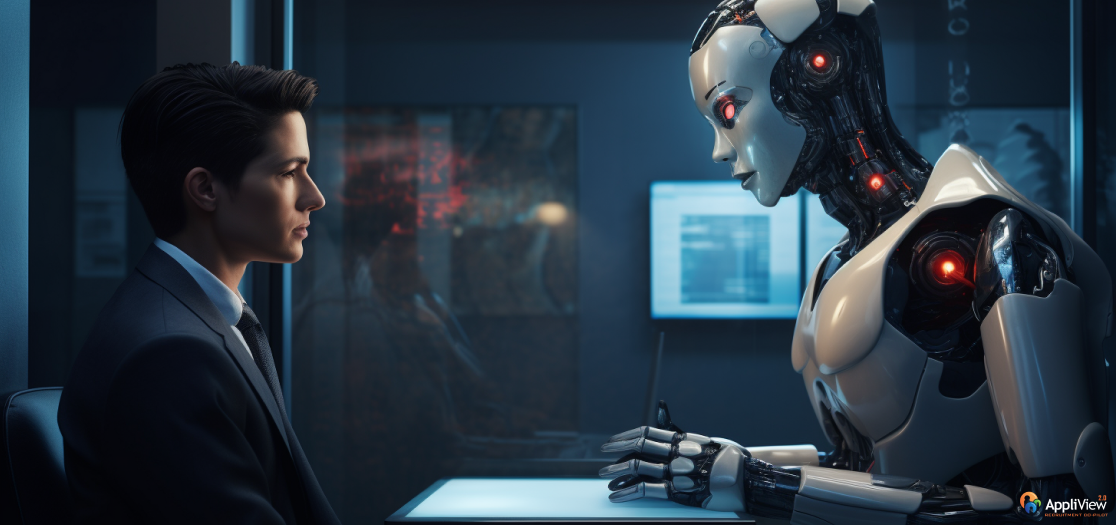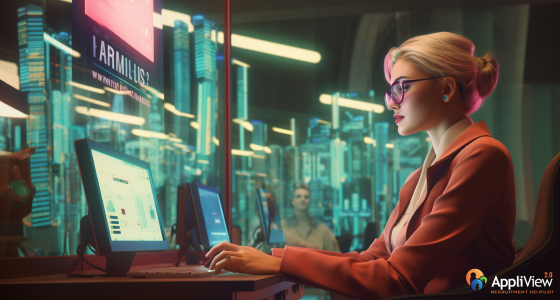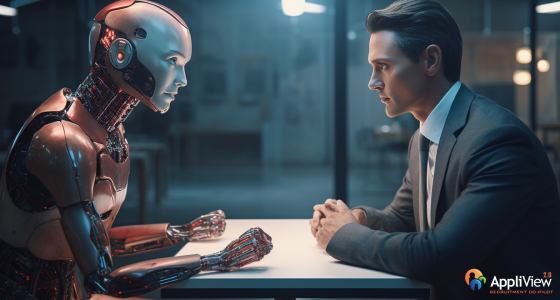The Intersection of AI and Emotional Intelligence in HR
December 21, 2023

The integration of Artificial Intelligence (AI) and Emotional Intelligence (EI) in the Human Resources (HR) industry is transforming processes, making them more efficient and data-driven. EI promotes improved communication, empathy, and employee well-being, while AI automates repetitive tasks and provides data-driven insights for decision-making. AI can help HR professionals discern employee emotions and use sentiment analysis tools to identify areas of concern. However, challenges include data privacy and security concerns, as well as potential bias in AI algorithms. Real-world examples show that AI-driven emotional analysis tools can improve employee engagement and reduce turnover rates. The future of AI and EI in HR is promising, with AI algorithms becoming more adept at analyzing emotional signals and expanding to virtual reality training and personalized learning.
The Intersection of AI and Emotional Intelligence in HR
Technology has been a game-changer in the Human Resources (HR) industry, making processes more efficient, data-driven, and insightful. Artificial Intelligence (AI) and Emotional Intelligence (EI) are two main drivers of this transformation. This blog examines the intersection of AI and Emotional Intelligence in Human Resources and their implications for large and medium-sized businesses, as well as entrepreneurs, in the IT and technology service industries.
HR’s Understanding of Emotional Intelligence
Emotional Intelligence (EI) is the capacity to perceive, comprehend, and manage our own and others’ emotions. EI is invaluable in human resources because it promotes improved communication, empathy, and overall employee well-being. HR professionals with a high EI can foster a more harmonious and supportive workplace. Incorporating EI into HR practices is critical for boosting employee engagement, reducing turnover, and nurturing a positive workplace culture.
The Function of AI in HR

On the other hand, AI is redefining HR by automating repetitive tasks, processing vast amounts of data, and providing data-driven insights for improved decision-making. It can assist in resume screening, schedule interviews, and even predict employee turnover. The ability of artificial intelligence to analyze vast datasets and identify patterns makes it an indispensable tool for human resource professionals.
The Synergy Between AI and Emotional Intelligence
The Symbiosis Between Artificial Intelligence and Emotional Intelligence AI and EI may appear to be polar opposites, but they can complement one another in HR. By analyzing data fromsurveys, feedback, and even facial expressions, AI can help HR professionals discern employee emotions. Powered byartificial intelligence, sentiment analysis tools can provide valuable insights into employee satisfaction andimprovement areas. These insights empower HR to take more targeted and empathetic actions.An instrument powered by AI, for instance, can analyze employee feedback and pinpoint specific areas of concern. HRcan then use this data to develop strategies to enhance workplace conditions by addressing issues that may have anegative impact on the emotional well-being of employees.
Challenges and Considerations
While the integration of AI and Emotional Intelligence into HR offers numerous advantages, there are also challenges and factors to consider. Data privacy and security concerns are paramount, as HR interacts with sensitive employee information. Businesses must implement stringent data protection measures and adhere to applicable regulations. The existence of bias in AI algorithms is another source of concern. Inadvertently, AI systems can perpetuate biases inherent in historical data. Human resource professionals should be aware of these potential biases and work actively to mitigate them to ensure fair and equitable decision-making.
Selecting the Right Technology for Your HR Needs

It is crucial for enterprises in the IT and technology service industries to select the appropriate technology. When selecting AI tools for your HR department, consider factors such as simplicity of integration with existing systems, scalability, and the level of customization available. Look for tools that offer robust data security features and have a track record of reducing bias in their algorithms.
Future Trends in AI and Emotional Intelligence in HR
AI will become more adept at analyzing emotional signals, making it a more valuable resource for human resource professionals. As AI algorithms continue to advance, they will provide increasingly precise insights into the emotions and well-being of employees.
In addition, the integration of AI and EI in human resources will likely expand to include virtual reality training, chatbots for employee support, and personalized learning and development programs. These developments will allow HR departments to provide an even more individualized and compassionate employee experience.
The conclusion
In a world where technology is constantly reshaping the way we work, the synergy between AI and Emotional Intelligence in HR represents a promising opportunity for businesses. It enables HR professionals to make data-driven decisions while promoting employee emotional well-being. The combination of these two apparently disparate elements is a potent agent of positive transformation.
